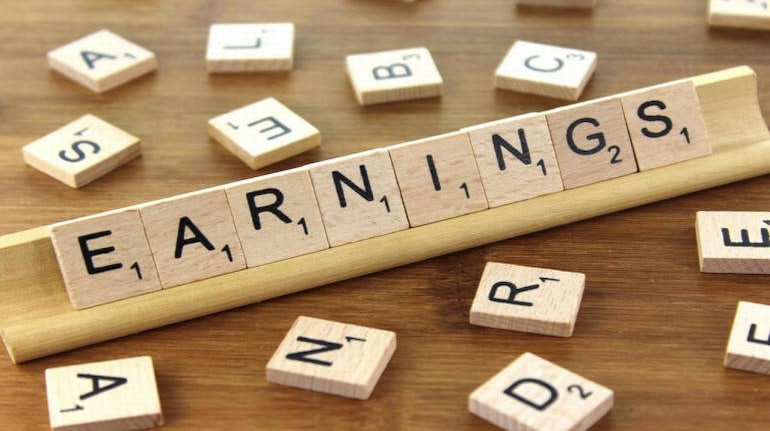



A year-on-year contraction of around 10 percent is expected in Nifty EPS in FY21. In absolute terms, FY21 Nifty EPS is expected to be only slightly better than FY17/18 EPS, R Venkataraman, MD, IIFL Securities Ltd, says in an interview to Moneycontrol’s Kshitij Anand. Edited excerpts:
Q) What according to you will weigh on Indian markets?A) We do not think that the investors are worried due to the International Monetary Fund (IMF) forecasts. The consensus forecast of GDP already points to 5 percent YoY contraction in FY21 and hence IMF outlook shouldn’t have been a negative surprise.
That said, expensive valuations (due to recent rally and depressed earnings estimate) and an uncertain recovery path (of the economy) is likely to weigh on equity markets.
Q) What is the one word you will use to describe the first six months of 2020 and why?A) The one word that best describes the last six months would be ‘unprecedented’, in our view. The pandemic has led to a collapse of economies across the world.
The health infrastructure in several countries is struggling to cope with the rising caseload and the progress made by developing economies on poverty is expected to reverse.
However, equity markets have seen a sharp recovery over the last couple of months, partly because the crisis doesn’t hurt all sectors, uniformly.
Q) Where do you see markets and earnings over the next six months? Your outlook for the market?A) We are estimating a ~10 percent YoY contraction of Nifty EPS in FY21. In absolute terms, FY21 Nifty EPS is expected to be only slightly higher than FY17/18 EPS.
However, the number of infections continues to rise and hence states have been forced to maintain some degree of restrictions on economic activity.
While a deep contraction in earnings and economy in FY21 is widely expected, the recent rally suggests investors expect a sharp reversal in momentum after FY21.
While the low base of FY21 could optically lead to a higher growth in FY22, a sustained recovery could take longer, in our view.
Currently, the COVID-19 storm is still blowing, and it may be too early to assess the lasting impact of the damage that the virus will have on the economy, various industries, the banking sector, and eventually medium-term growth.
A V-shaped recovery will come, but from a trough, any recovery would look like V-shaped. Markets are on the optimistic side, fuelled by extremely easy liquidity conditions.
Over the rest of FY21, the pain in the global and the Indian economies will become more apparent and will cap market upsides from here.
Q) In the first six months of 2020 we saw plenty of buybacks and companies going for delisting. What is the rationale behind these moves and do you think this will continue in the next six months?A) Several companies were attractively valued after the sharp correction in 1QCY20 and this could have encouraged buybacks. Also, some corporates may have announced buybacks for supporting stock prices.
The buyback momentum could slow a bit because the equity markets have rallied and the valuations have become expensive. Also, corporates may want to preserve balance sheet strength until the visibility on the economy and demand improves.
Q) Which sectors are likely to be the leaders and the laggards in the next six months?A) Sectors like Pharma, telecom, and insurance have done well in the last few months, partly because these sectors are less vulnerable to the current crisis. We think these sectors will continue to lead the rally in the near term.
It would also be expected to hold up, being more dependent on the US economy, and hence indirectly likely to benefit from the significant stimulus to the economy that the administration in the US is implementing.
Consumer names like HUL, Pidilite, Asian Paints, and Berger will do well as unorganized competition weakens.
We are worried about NBFCs, which were leading rural lending and lending to small businesses and borrowing wholesale. SME pain will be felt by NBFCs and only the largest and best ones will weather the storm.
In general, from these levels, financials will underperform (even in the rally from March 23 they have underperformed). Select auto names like Maruti and Hero will also do well, being debt-free, and as the risks of public transport translate in the short term to a preference to private vehicles.
Q) Many new investors joined the party on D-Street in the first six months. What are the tips you will share with them to keep them afloat amid volatility?A) The economy has faced several challenges in the last few years and the corporate earnings growth momentum has also been weak. The outlook on both earnings and the economy has only worsened in the last few months due to the pandemic.
We have been recommending investors to stick to companies with visibility of strong earnings growth and healthy balance sheets due to weak macro and this strategy should continue to outperform.
Q) Gold hit a new high in the week gone by. Do you think it can outperform equities in 2020?A) Gold has outperformed other asset classes over the last year, partly reflecting the heightened uncertainty. The worries on the economy could keep the yellow metal prices at elevated levels in the near term.
Disclaimer: The views and investment tips expressed by experts on Moneycontrol.com are their own and not those of the website or its management. Moneycontrol.com advises users to check with certified experts before taking any investment decisions.Discover the latest Business News, Sensex, and Nifty updates. Obtain Personal Finance insights, tax queries, and expert opinions on Moneycontrol or download the Moneycontrol App to stay updated!
Find the best of Al News in one place, specially curated for you every weekend.
Stay on top of the latest tech trends and biggest startup news.